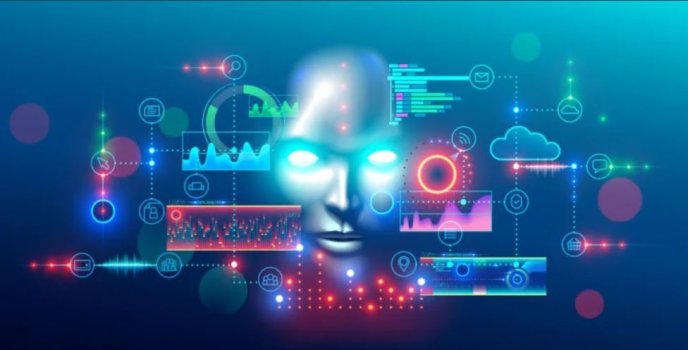Among the many drivers of the tech ecosystem’s rapid growth, artificial intelligence (AI) and its subdomains are at the fore. Described by Gartner as the application of “advanced analysis and logic-based techniques” to simulate human intelligence, AI is an all-inclusive system with numerous use cases for individuals and enterprises across industries.
There are many ways of leveraging AI to support, automate and augment human tasks, as seen by the range of solutions available today. These offerings promise to simplify complex tasks with speed and accuracy, and to spur new applications that were impractical or possible previously. Some question whether the technology will be used for good or perhaps become more effective than humans for certain business use cases, but its prevalence and popularity cannot be doubted.
What is artificial intelligence (AI) software?
AI software can be defined in several ways. First, a lean description would consider it to be software that is capable of simulating intelligent human behavior. However, a broader perspective sees it as a computer application that learns data patterns and insights to meet specific customer pain points intelligently.
The AI software market includes not just technologies with built-in AI processes, but also the platforms that allow developers to build AI systems from scratch. This could range from chatbots to deep and machine learning software and other platforms with cognitive computing capabilities.
To get a sense of the scope, AI encompasses the following:
As expected, the rise in enterprise-level adoption of AI has led to accelerated market growth of the global AI software market. Gartner places the growth at an estimated $62.5 billion in 2022 — a 21.3% increase on its value in 2021. By 2025, IDC projects this market to reach $549.9 billion.
Continue reading: https://venturebeat.com/ai/10-top-artificial-intelligence-solutions-in-2022/
There are many ways of leveraging AI to support, automate and augment human tasks, as seen by the range of solutions available today. These offerings promise to simplify complex tasks with speed and accuracy, and to spur new applications that were impractical or possible previously. Some question whether the technology will be used for good or perhaps become more effective than humans for certain business use cases, but its prevalence and popularity cannot be doubted.
What is artificial intelligence (AI) software?
AI software can be defined in several ways. First, a lean description would consider it to be software that is capable of simulating intelligent human behavior. However, a broader perspective sees it as a computer application that learns data patterns and insights to meet specific customer pain points intelligently.
The AI software market includes not just technologies with built-in AI processes, but also the platforms that allow developers to build AI systems from scratch. This could range from chatbots to deep and machine learning software and other platforms with cognitive computing capabilities.
To get a sense of the scope, AI encompasses the following:
- Machine learning (ML): Allows a computer to collect data and learn from it to generate insights.
- Deep learning (DL): A step further in ML used to detect patterns and trends in large volumes of data and learn from them.
- Neural networks: Interconnecting units that are designed to learn and recognize patterns, much like the human brain.
- Natural language processing (NLP): NLP supports AI’s ability to read, understand and process human language.
- Computer vision: Teaching computers to collect and interpret meaningful data from images and videos.
As expected, the rise in enterprise-level adoption of AI has led to accelerated market growth of the global AI software market. Gartner places the growth at an estimated $62.5 billion in 2022 — a 21.3% increase on its value in 2021. By 2025, IDC projects this market to reach $549.9 billion.
Continue reading: https://venturebeat.com/ai/10-top-artificial-intelligence-solutions-in-2022/

